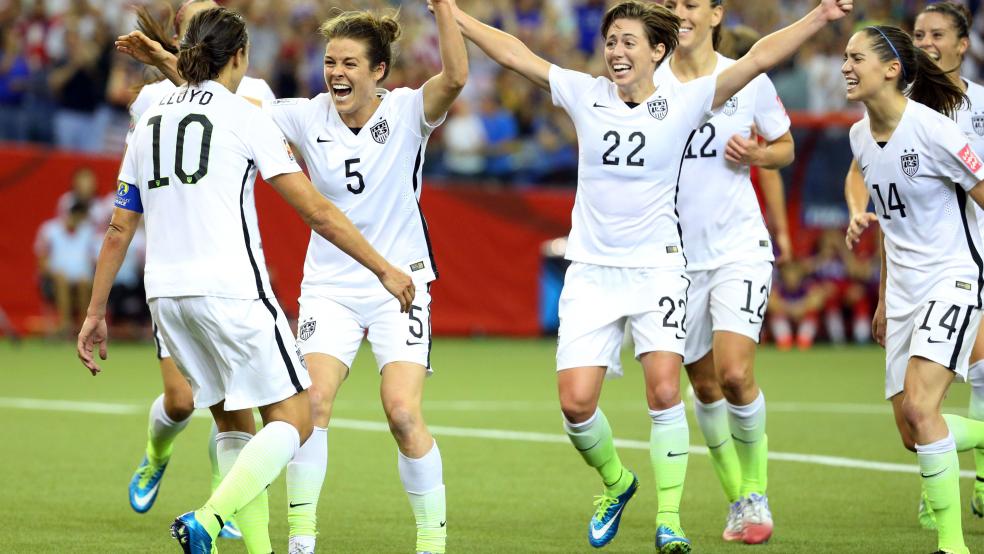The United States women's soccer team is riding high into this weekend's World Cup final—and ticket prices are soaring with them.
The U.S. rolled to a decisive 2-0 victory over world No. 1 Germany in the semifinals Tuesday night. By Wednesday morning, the average secondary ticket price for Sunday's championship in Canada spiked more than 50 percent from the day before, according to resale vendor TiqIQ.
The average fan will shell out $819.46 for a resale ticket on TiqIQ, up from $540.55 on Tuesday. The get in price, or cheapest ticket available, also rose about 85 percent to $353.
That demand for tickets may underscore a continuing rise in the popularity and marketability of soccer—and women's sports more broadly—in the U.S.
"I think the biggest takeaway is that people in the United States seem to be finally growing the love of soccer, if at just the national level, regardless of whether it's men's or women's," said Chris Matcovich, vice president of data and communications at TiqIQ.
Related: Why the FIFA Crackdown Took the World by Surprise
The women's soccer team's success certainly helps. In the seven World Cups since the event started on the women's side in 1991, the U.S. has won twice and never finished worse than third place.
Viewership for this year's World Cup has grown about two to three times since the last world championship in 2011, said Manish Tripathi, an Emory University marketing professor and co-founder of Emory Sports Marketing Analytics. Ad revenue has roughly quadrupled, he added.
Soccer, along with tennis, has become one of the most marketable women's sports in the U.S. The last World Cup victory in 1999 helped encourage "a legion of young American women" to play the sport, he said.
With another victory, the U.S. would create similar buzz around the sport. U.S. soccer now faces the challenge of translating World Cup momentum into more traction at home.
Turning the National Women's Soccer League—which was founded in the U.S. in 2012—into a "thriving professional league" would bring more marketing opportunities, Tripathi said. Most of the U.S. roster—including stars Alex Morgan, Hope Solo, Megan Rapinoe and Carli Lloyd—already play in the NWSL.
This article originally appeared on CNBC
Read more from CNBC
Survey Says: 35 percent of Americans would expatriate
How to talk with your partner about your money
Forget Gov. Christie, watch NJ Credit




